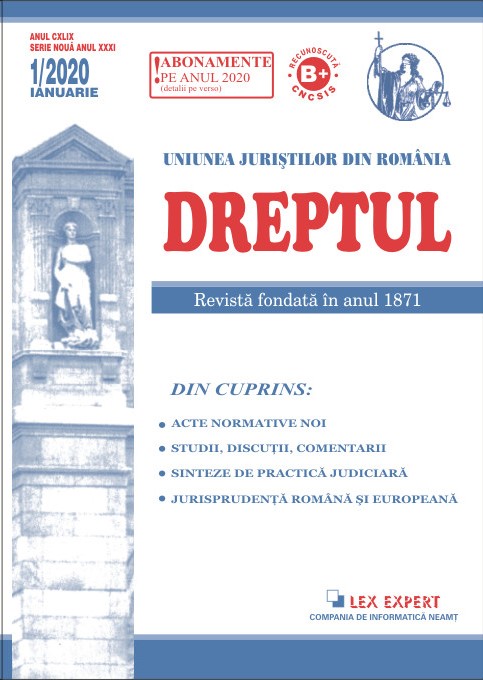Actio libera in causa
Actio libera in causa
Author(s): Daniel BălanSubject(s): Criminal Law
Published by: Uniunea Juriștilor din România
Keywords: actio libera in causa; actio ilicita in causa; cause of non-imputability; form of guilt; intoxication;
Summary/Abstract: The phrase actio libera in causa designates that situation in which the perpetrator, at the time of committing a deed stipulated by the criminal law, was in a situation that excludes the imputable character of the deed. However, it must be emphasized that, at a previous moment, when the perpetrator was not under the incidence of such causes, he triggered or allowed the emergence of some states of fact that would eliminate the imputable character of the deed. In such a hypothesis, the criminal doctrine from Romania is unanimous in accepting that the person who causes his own state of incapacity will be liable under the criminal law. In order to argue the possibility that a person, at the time of committing a typical action or inaction, be liable under the criminal law, the authors of criminal law in our country have adopted the model of exception or extraordinary imputation. According to this system, the perpetrator will be liable under the criminal law for causing his own state of incapacity. Thus, the imputability, in the case of the construction of actio libera in causa, will not be analyzed at the time of committing the criminal deed, but in relation to the moment when the perpetrator caused his state of incapacity. The construction actio libera in causa, from our point of view, covers only certain hypotheses in which the perpetrator creates the appearance of existence of a cause of imputability (intoxication, irresponsibility, physical or moral constraint), and not those hypotheses, in which the perpetrator provokes the existence of a justifying cause. Actio libera in causa may be intentional or culpable. As far as we are concerned, in determining whether the perpetrator will be liable for an intentional offence or for a culpable offence, when acting in a state of actio libera in causa, we have chosen to consider the subjective position of the author from the moment he causes his own state of incapacity. This being the case, if he seeks to commit an offence or accepts such a possibility, he will be liable for an intentional offence. On the other hand, if he did not foresee the possibility of committing an offence in such a state, although he had the obligation and the possibility to foresee such a consequence or when, although he provided for the possibility of committing an offence, he did not accept it, the perpetrator will be liable for a culpable offence, in case that the respective offence would be incriminated also when committed with this form of guilt. From our point of view, in the case of the construction of actio libera in causa, the attempt will be analyzed as in the case of other offences. Therefore, we will be able to talk about an attempt when this has entailed the commission of some acts of execution specific to the offence which is going to be committed. We cannot agree with the opinions expressed in the legal literature from abroad which appreciate that we could talk about an attempt even from the moment the perpetrator starts the action that causes him the state of incapacity. The national judicial practice is quite poor in examples of actio libera in causa. In most cases, the perpetrators, in order to show that they acted in a state of actio libera in causa, have invoked the fact that they were under the influence of alcoholic drinks. In such assumptions, the national courts merely pointed out that this was not a complete intoxication, so that we could not discuss about an actio libera in causa. Finally, in order to cover any discussion regarding the observance of the principle of legality with regard to the engaging of the liability of a person who causes his own incapacity, that is, acting in a state of actio libera in causa, we consider that the Romanian legislator should expressly regulate the fact that the person who provokes their existence will not benefit from the effects of the causes of non-imputability, following the example of other European legislations, such as that of Switzerland.
Journal: Revista „Dreptul”
- Issue Year: 2020
- Issue No: 01
- Page Range: 112-131
- Page Count: 20
- Language: Romanian
- Content File-PDF

